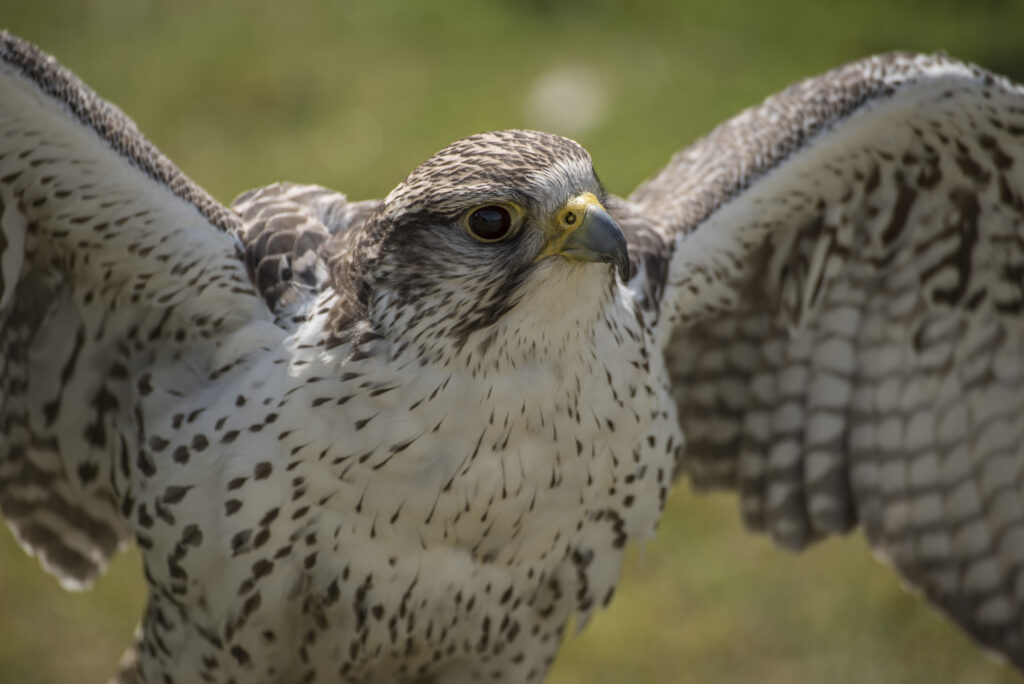Nesting birds can exhibit some seriously intimidating territorial behaviors. Swooping season is a well-known phenomenon in Australia. During the period between August and October, when Australia’s magpies are nesting, these birds are known to become aggressive and to “swoop” or dive-bomb cyclists and pedestrians who venture too close to their nests. This behavior doesn’t usually result in any serious harm, but it can cause injuries, especially to cyclists. Swooping season is so prevalent an issue that special bike helmets which deter magpies are commonly worn during these months.
Related Article: Study Indicates That Mountain Quail May Benefit From Wildfires
Now imagine all of that territoriality in the hands, or rather the talons, of a Peregrine Falcon. This is precisely what has been happening in one Chicago neighborhood. Wacker Drive is a busy area in Chicago, which means that a pair of territorial falcons have lots of human interlopers to swoop.
One pedestrian who was attacked by one of the falcons told the Chicago Sun-Times that the impact felt “like a 16 inch softball.” He was left with an inch long wound and received a tetanus shot.
The Peregrine Falcons have continued dive-bombing passersby from their nest on a seventh floor ledge, above a well-trafficked area. Workers have posted signs, warning pedestrians to seek alternate routes until the birds’ young are fledged and they move on. This pair of Peregrines has been nesting in this building since 2016, but this year is the first that they have nested low enough to perceive human pedestrians as a threat to the safety of their hatchlings.
Unlike most magpies, an agitated falcon is capable of doing some serious harm to perceived threats. Fortunately, these protective parents are more interested in frightening off potential intruders than actually picking a fight. Despite this, pedestrians are being warned to avoid the area surrounding the nest as much as possible for the sake of both safety and the well-being of the birds.
There is a silver lining to this furious feathered cloud. There was a time in the United States when Peregrines were on track for extinction. The widespread use of the pesticide DDT wreaked havoc on the reproductive capabilities of Peregrines. When this chemical was banned, a massive recovery effort began. The Peregrine Falcon is one of the greatest success stories in the history of conservation. In 1999 they were removed from the Endangered Species List and have gone on to become populous enough to strike terror into the hearts of Chicago’s commuters. Don’t call it a comeback.
Popular Article: Bluebirds Are a Success Story For Cavity Nesters

